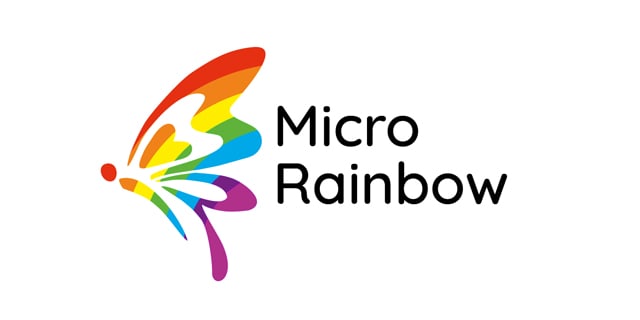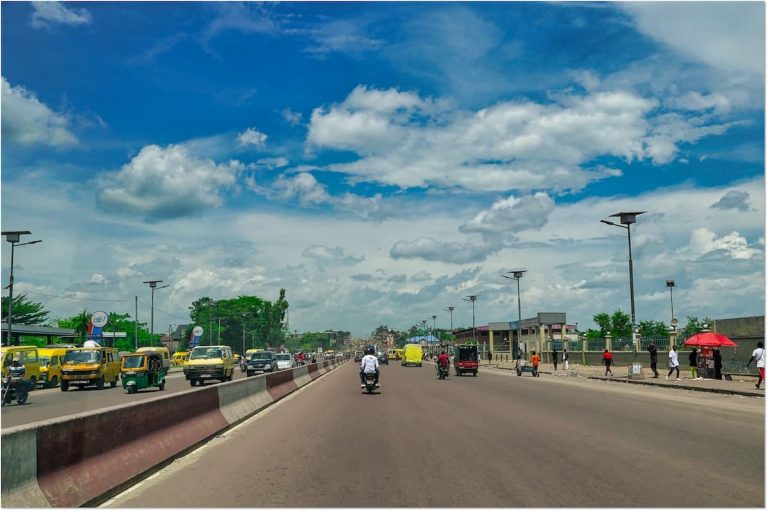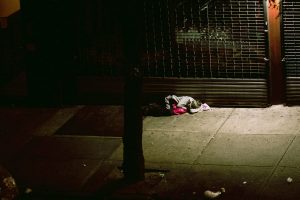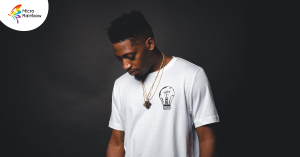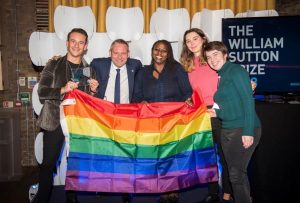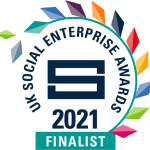My name is Eric. I am a Black African gay man. I have spent most of my life having to hide who I am, but now I am free to be myself and live with pride.
Life in the Democratic Republic of the Congo
For me, life in the DRC was good in many ways. Growing up, my family was quite well off and I lived a life of relative privilege. I went to study in South Africa, where I spent the next 10 years working in hospitality. Returning to the DRC in 2011, I got a job working for the US embassy. Life was going well, it seemed — but I was living with a huge secret.
As I neared the age of 40, pressure grew for me to marry. In Congolese society, it is not acceptable for a man to remain unmarried – you are expected to find a wife and have a family. On my 40th birthday, my family arranged what was supposedly a birthday party for me. But once there, my drink was drugged, and I was abducted. I woke to find myself almost naked with just a piece of white cloth tied around my waist, and my face and body daubed with paint. I was in darkness. People were all around me holding torches, chanting, and singing, performing rituals to cleanse me of evil spirits. I was drifting in and out of consciousness and lost track of time. I believe I was there for one or two days.
I came to, utterly terrified. I tried to make sense of what was happening. The people who had abducted me took me to my uncle’s house. My uncle was high up in the government – a figure of respectability and influence in our society. He told me that I had been outed; someone had informed my family that I was gay. My uncle made it clear that he could not have a gay man in his family. He then gave me an ultimatum: find a wife within six months or go to prison.
I didn’t speak – I simply listened. I was shocked and traumatized by what I had just experienced. Still, I had no intention of doing as he said; I knew I couldn’t live like that. So, instead, I lay low and hoped they would forget all about it.
As time passed, and my uncle got word that I wasn’t taking any steps to find a wife, he decided it was time to follow through with his threat. My uncle’s position in the government meant that not only could he put me under surveillance, but he could also have me imprisoned at a moment’s notice. My uncle’s wife came to tell me of his plan, and I realised the moment had come when I could no longer live safely in the DRC. I knew then that if I stayed, I would either end up killing myself, or I would be killed.
I booked tickets to fly to the UK and left as soon as I possibly could. I knew no one and had no connections to the UK, but it seemed the only safe option – to sever ties with my family completely. I knew I had to let my old life die, to have hope of being reborn into a new life.
Life in the UK
Arriving at Birmingham airport, I claimed asylum immediately. The screening interview was incredibly daunting and overwhelming, though I was treated respectfully. I had some savings with me, so for two weeks I stayed in a hotel. Soon my money ran out. I had been given the number for Migrant Help, and when I contacted them, they arranged financial support from the Home Office. They also signposted me to other charities, including Crisis and Micro Rainbow, who found me legal representation and accommodation in a house with other LGBTQI asylum seekers.
I don’t know what I’d have done without Micro Rainbow – I’ve heard such terrible stories of those forced to live in detention centres. I cannot begin to imagine what this whole journey would have been like for me if I had not landed on their wings. With the people at Micro Rainbow, I am seen as my whole, true self. They understand my struggles, my journey, my dreams. They are family.
The process has been long. Nearly two years on, I’m still waiting to hear whether I’ll be given leave to remain. Going through this experience during the pandemic has been even more isolating. I have tried dating, but I haven’t found many people open to dating an asylum seeker. I have suffered with depression. It’s not something I had ever thought I could get, but now I know how real it is.
During this time, there have been beautiful experiences too. I attended Gay Pride for the very first time. I stood on a float with a local LGBTQI community group, and I felt free and proud for the very first time to be myself: a gay man. I also had one date with a man where we walked hand in hand down the street. Just being able to walk and hold hands, something as simple as that, was such a special moment. It was the feeling of freedom, of peace, and just being openly, honestly me.
The future
My hope for the future is first and foremost to be granted leave to remain – to be able to move on with my life, and hopefully meet someone to start a family with. I have a lot of love to give, and I would love to have children. I also hope to be involved in mental health awareness, particularly working with the black community. I think there’s a dangerous lack of understanding around issues such as depression; mental health challenges are often not acknowledged or supported. In the black community, I think we have this mindset that depression is not for us, but the truth is that it’s silently killing and destroying people. I would like to use my experiences to benefit other people if I can.
